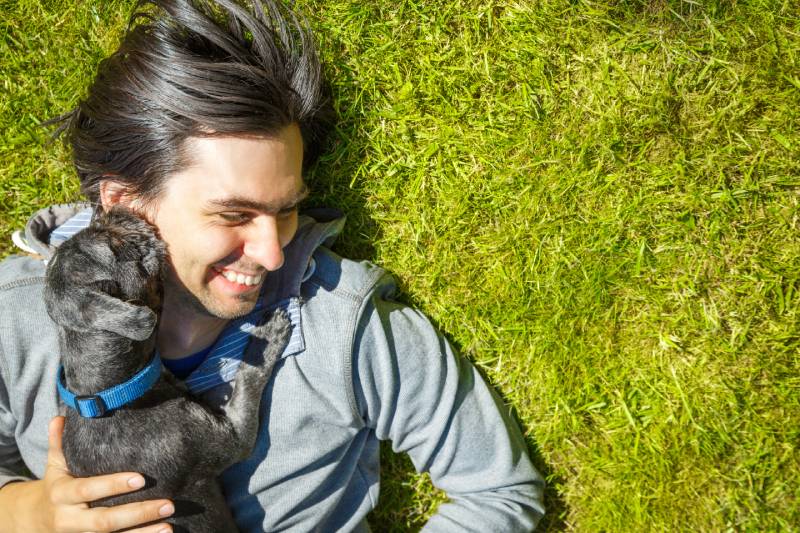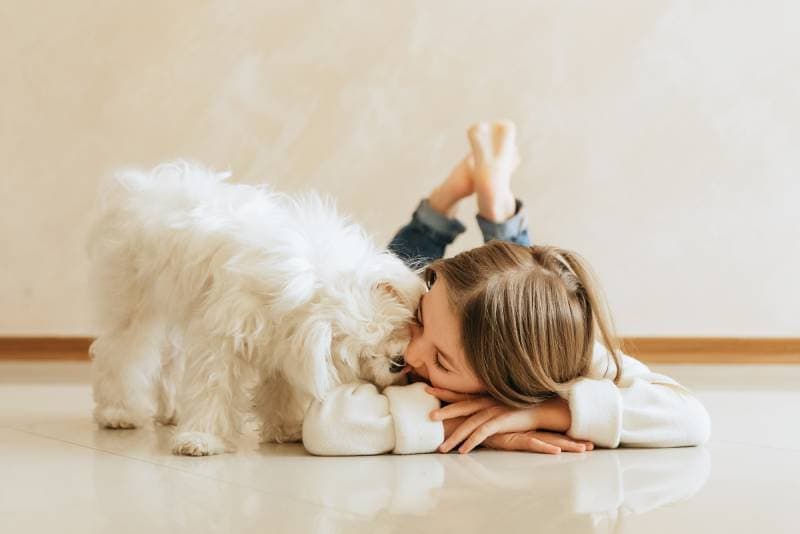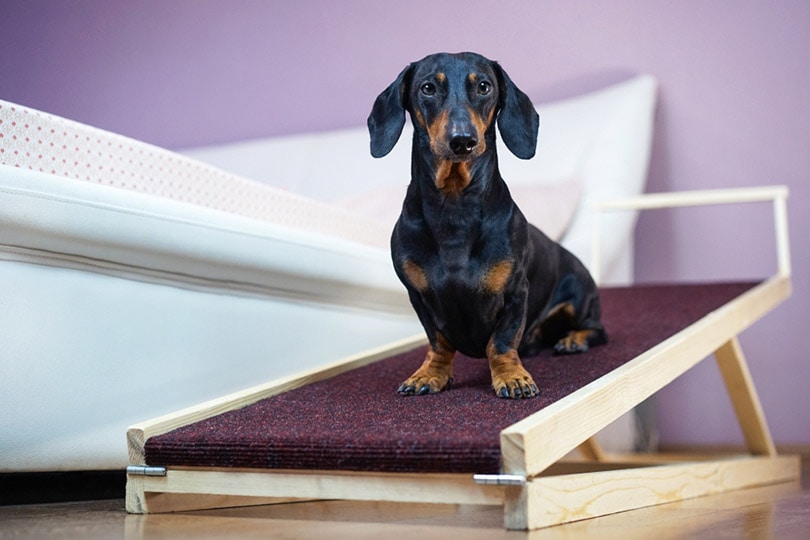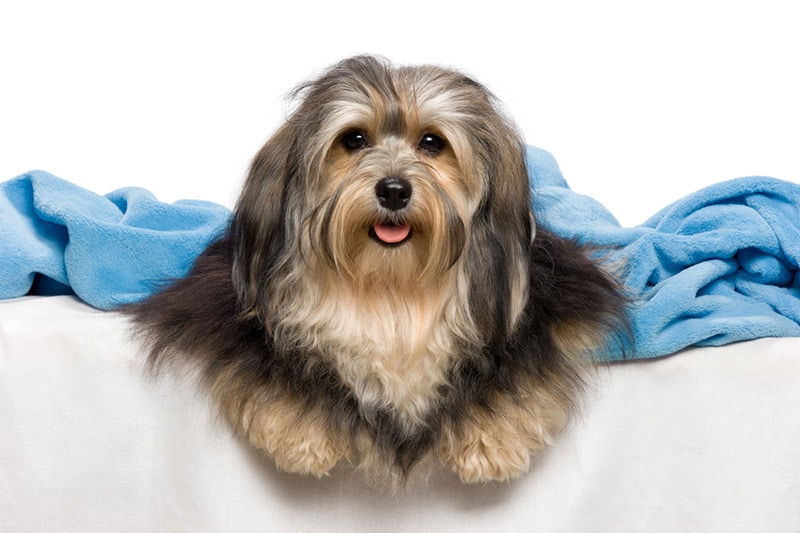Why Does My Dog Eat My Hair? 7 Possible Reasons
Updated on

Most people know that dogs groom themselves and ingest some fur by accident from time to time, but what about when they’re eating your hair? Vacuuming up stray hairs or even chewing the hair on your head is certainly head-scratching behavior from your dog, and it can be hard to diagnose why they’re chewing your hair. It could be innocuous, or a sign of a deeper problem you need to address. Let’s break down the numerous possible reasons your best furry friend is nibbling on your hair.
The 7 Reasons Your Dog May Eat Your Hair
1. They’re Bored
First on our list is simple boredom, which is likely the most common reason for dogs eating human hair. Bored dogs stick everything in their mouths, and hair has a unique texture that temporarily stimulates them. This might be because they’re not getting enough exercise or if they don’t have any stimulating toys around. Just make sure you try to give your dog some extra attention and playtime when you notice recurring hair chewing.

2. They’re Anxious
Just as in humans, repetitive stimming motions like chewing help soothe anxious or scared pups. Bones, rawhide, and other tough dog-safe chewables are best to satisfy this urge. When your dog is anxious and starts eating hair, you should gently redirect them to an acceptable toy. If they engage with it in any way, give them heavy praise and a high-value treat, as this helps rewire their brain to search for that toy instead of chewing on hair when scared.
3. They’re a Puppy
Early in life, puppies have the joy of discovering the world, and even the most mundane objects seem magical or mysterious to their eyes. Hair has a unique texture and smells like you, so it really shouldn’t be any wonder why your new puppy is attracted to chewing your hair, whether it’s on you or elsewhere in your home. In most cases, they grow out of eating things like hair, at least in excess. If they don’t, firm but gentle redirection and positive reinforcement are your best tools.

4. They Want Attention
Dogs catch on fast when it comes to doing stuff that gets our attention, including undesirable behavior like eating hair. If you reliably give your dog attention when they eat hair, even negative attention, that can fuel future hair eating. To break the habit, schedule more frequent walks or outings to bond with your dog. Even if you don’t go out exercising, spending quality time via training or just hanging out can go a long way toward mitigating the issue.
5. They’re Hungry
Dogs aren’t the best at telling edible from inedible, and when hunger strikes, nearly anything vaguely food-looking is fair game. Yes, even hair. A little hair won’t hurt their stomachs, but it’s not good for them to eat. To discourage hair chewing because of hunger, we suggest formulating a mealtime routine to keep your dog full and less likely to graze for organic matter like hair.
6. They Have Pica
Excluding boredom and attention-seeking behavior, pica is a possible reason why your dog is eating hair. Pica is a catch-all term describing when dogs are compelled to eat inedible objects, often because of an unidentified health condition. For example, IBS and anemia are two possible medical conditions that can drive your dog to eat hair or other objects. While difficult to pinpoint sometimes, your vet can help narrow down the possible causes for your dog.

7. Hair Chewing Has Been Reinforced
Like people but in a more direct way, dogs build their behavior through observing and reacting to stimuli around them. When they perform a certain action like eating hair and something coincidentally good happens, it could reinforce the problem. This extends to chewing shoes, furniture, and other destructive habits like digging too.
Conclusion
Dogs do some very weird stuff sometimes, but if you look closely, you’ll see that they eat hair for a wide variety of plausible if not understandable reasons. Boredom is the most common cause of hair eating, and you should rule out behavioral culprits before calling your vet about diagnosing pica as a result of a medical malady.
Featured Image Credit: svetlana_kuznetsova_ph, Shutterstock












